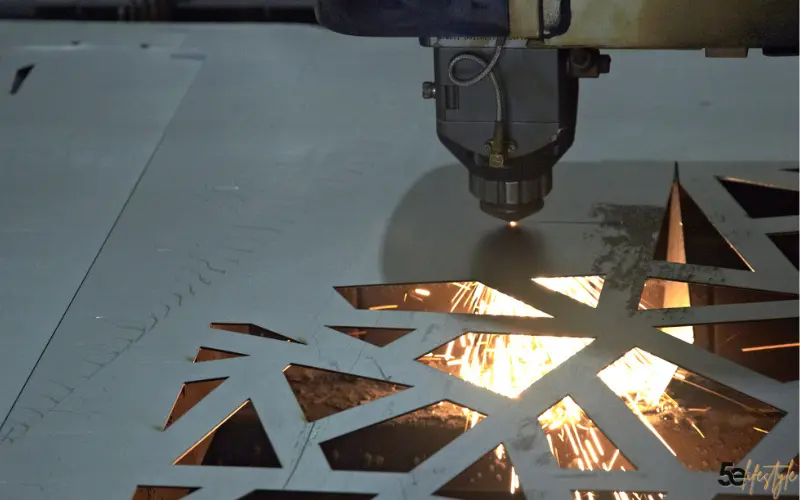Lifestyle
Types of job interviews and rules of conduct

The main method of selection was and remains an interview. There are several types of it: structured, situational (case interview), projective, behavioral (competency interview), and stress interview (shock). Different types of interviews solve different problems. In this review, we will consider each of them, analyzing all the advantages and disadvantages, and also find out which interview methods to use to evaluate which employees are most effective. To try your hand and pass an interview for a dream job, go to the site layboard.in.
Table of Contents
Structured interview
The most common and easiest to prepare and organize. During this interview, the candidate is asked simple standard questions in order to find out the professional data about the candidate, his personal competencies, financial expectations and how he will fit both the intended position and the corporate culture, how easily he will fit into the new team.
1. Technology
For this type of interview, questions are prepared in advance, based on the profile of the position, there are some reference models of answers, questions are asked to all candidates, and a candidate whose answers are closest to the reference ones is selected.
2. Interesting facts about the structured interview method.
-
Planned provocations.
Among the frequently asked questions, you can find both neutral in their coloring and frankly negative or non-standard ones. Nevertheless, even the answers of the candidate, which would seem to be the banalest questions, will help an experienced recruiter to make an accurate psychological portrait and give a lot of information about the general character of the applicant. So in response to the question: tell us about yourself as a person and a specialist, it is clear what is important for the respondent. Preference should be given to a candidate who, instead of presenting the usual data about his life, will tell how effective he is as an employee. He will mention how he can be useful to the company to which he came for an interview and how he will solve the tasks assigned to them.
-
Elements of projective questions.
Along with the usual and repetitive questions in this type of interview, some recruiters use unexpected questions. For example, who do you associate yourself with? Questions of this kind help to assess the candidate’s ability to think outside the box, test his ingenuity, and sense of humor, and show how he knows how to get out of non-trivial situations.
-
Trick questions.
Also in many companies in structured interviews, frequent questions are so-called trick questions. For example, state why we should not hire you. There is an opinion that it is the answers to unpleasant questions that mobilize him and this leads him to look for a way out of a stressful situation. In this way, the features and qualities that it possesses are more fully revealed.
3. Benefits
Among the advantages of a traditional interview is that it is accessible to beginners because not everyone can formulate questions to a candidate correctly and professionally right off the bat, and using this method of conducting an interview will guarantee that the candidate will be asked all the necessary questions.
In addition, this method is simply indispensable when it is necessary to conduct a typical interview.
4. Disadvantages
- The following points can be identified as disadvantages: formality, with its help you can get not so much objective information about the skills that the candidate actually possesses.
- The second disadvantage is that the answers to the questions must be recorded all the time, and this greatly complicates the task of the specialist who conducts the interview. Such an interview will most effectively help select personnel for the so-called typical positions, where the candidate’s answers are standard and not complicated in content: a sales assistant (beginners), drivers, couriers, storekeepers, etc.
Situational interview
This type of interview determines exactly how the applicant will handle the job assignments assigned to them.
1. Technology of carrying out
The essence of the method lies in the fact that the HR manager puts hypothetical situations that may arise in the course of his professional activities. As a rule, for himself, the HR manager prepares preliminary response standards. It is best if he asks to advise him in this direct supervisor in the department where the selection of employees takes place. You can also find templates for answers on the Internet.
In addition, the presence of a group of experts who will help evaluate the correctness of the answers gives a very good result. It may include either a highly qualified specialist, the head of the department where the employee is selected, the personnel assessment manager, or the head of the recruitment department. If this is not possible, then the recruiter must make appropriate notes, and record all the candidate’s answers. Alternatively, instead of the expected answers, you can give the candidate open-ended questions about the work situation.
2. Advantages of the method
The undoubted advantage of this method is that after its implementation you will receive an accurate display of how much and how he understands the essence of the work, if the answers are analyzed by a group of experts, this will ensure maximum objectivity and reliability of the result.
3. Disadvantages of this interview method
But the presence of such an expert group is also a disadvantage, since it is very difficult to gather all the necessary specialists at the same time, and first you need to hold a meeting with them, to discuss the importance of the presence of all participants at this meeting and develop situational questions, and then discuss the answers to them. Based on this, it is most advisable to use it for the selection of line managers, young leaders, and managers.
Behavioral (competency interview)
One of the types of interviews that needs preliminary rigorous preparation.
1. Technology of carrying out
Its essence lies in the fact that based on the results of this interview, an assessment scale is drawn up, on how certain competencies are manifested in the behavior of the candidate in a working environment. Questions should be asked only about the subject’s past experience, and real situations that happened to him throughout his professional activities. They reveal not only ways to solve a particular problem, but also the conclusions that were made in the end.
Preparation for the interview on competencies consists of the formation of a competency model, in relation to which it will be determined how well the tested candidate corresponds to this position.
A competency model is a set of qualities and characteristics that an ideal candidate should possess. It should be noted that each position it will be a unique model and not the same for everyone. As a rule, it consists of 6-10 characteristics that a candidate for this position should have. Also, the set of competencies will be influenced by the organizational and corporate features of the company. After the model is compiled, you need to make a list of questions with which each quality will be identified. Here it is important not to forget about the time limits of the interview, usually, one question takes from 1 to 5 minutes. Accordingly, you can correctly calculate the number of questions. The next stage is the preparation of the candidate’s answer evaluation form.
Usually, each competency is rated on a scale from ND to 4 points, ND – means that the candidate has not shown any demonstration of this competence, 0 – the competence is not developed, 1 – is developed at a level below the average, it manifests itself mainly negatively, but there is also a positive presence, 2 – the average level, where positive and negative manifestations are distributed equally, 3 – above average, positive manifestations predominate, but there are also negative ones, 4 – shows the largest number of positive manifestations. When all preparations are completed, during the interview, the interviewer asks questions and notes the level of development of each competency in the form. Based on the results obtained, it is assessed how suitable the candidate is for this position.
2. Advantages of this type of interview
This method is good because it can be used not only when hiring, but also when forming teams within the company to work on a new project, when planning personnel rotation and for forming an internal development plan for employees, etc. Using this type of interview will help to establish as accurately as possible how a person will fit into the team and the company as a whole, to what extent his values coincide with the values of the corporation.
3. Disadvantages
But there are also disadvantages, this method is quite laborious and takes a lot of time, both at the preparation stage and for its implementation. In addition, the recruiter himself must have a clear idea of what answers correspond to what level of competence development. It is used for almost all positions since certain behavioral competencies are important in each specialty. Therefore, it can be used to select programmers, engineers, office managers, account managers, and managers of all levels.
For tips that will help you find the right pair of shades for the job, visit the Fashion section of our blog 5elifestyle.













